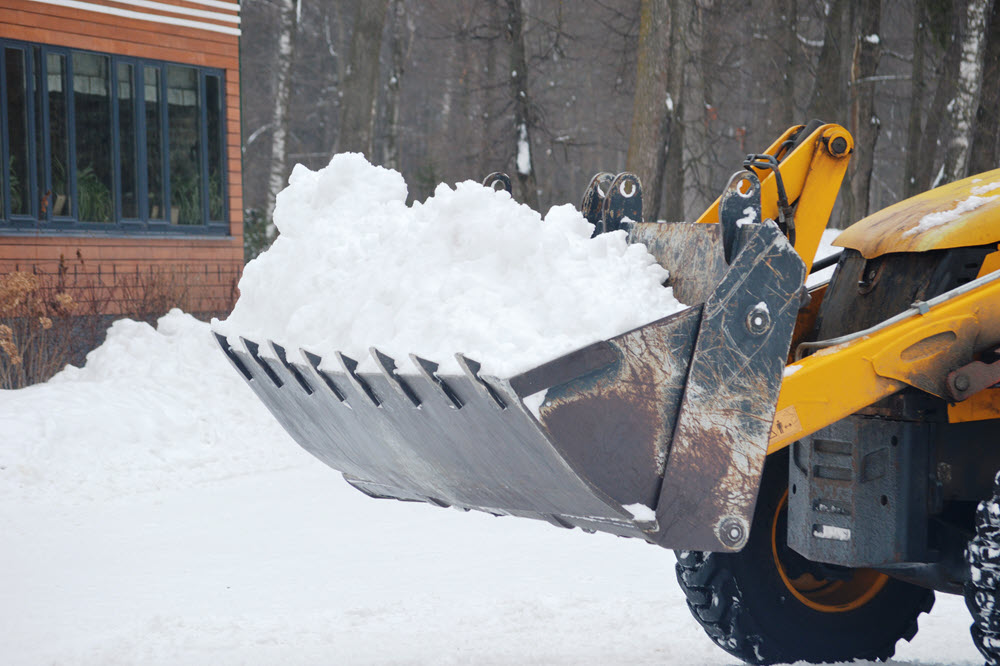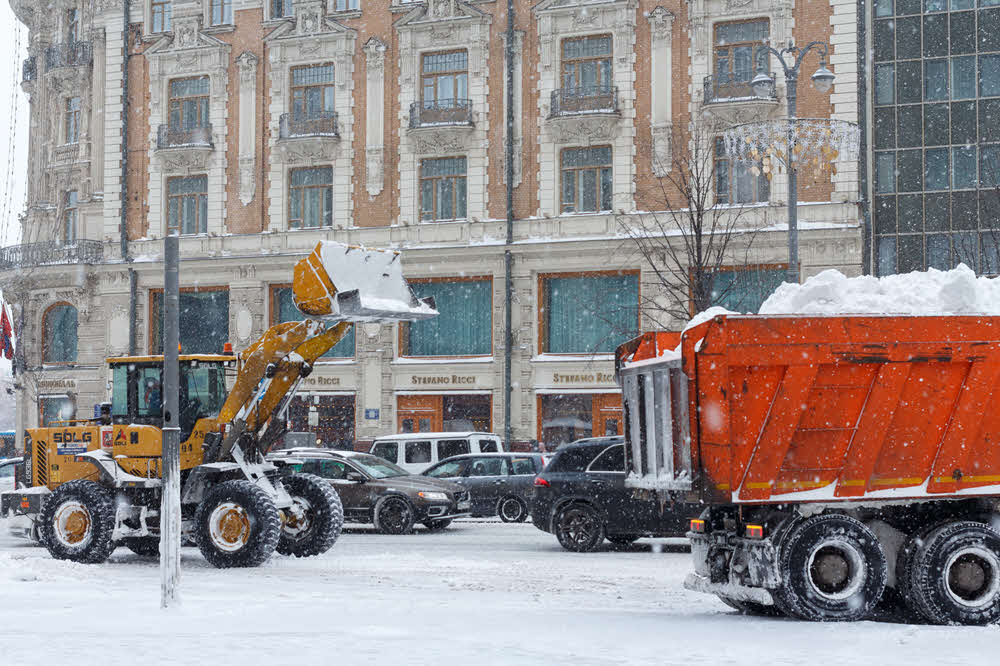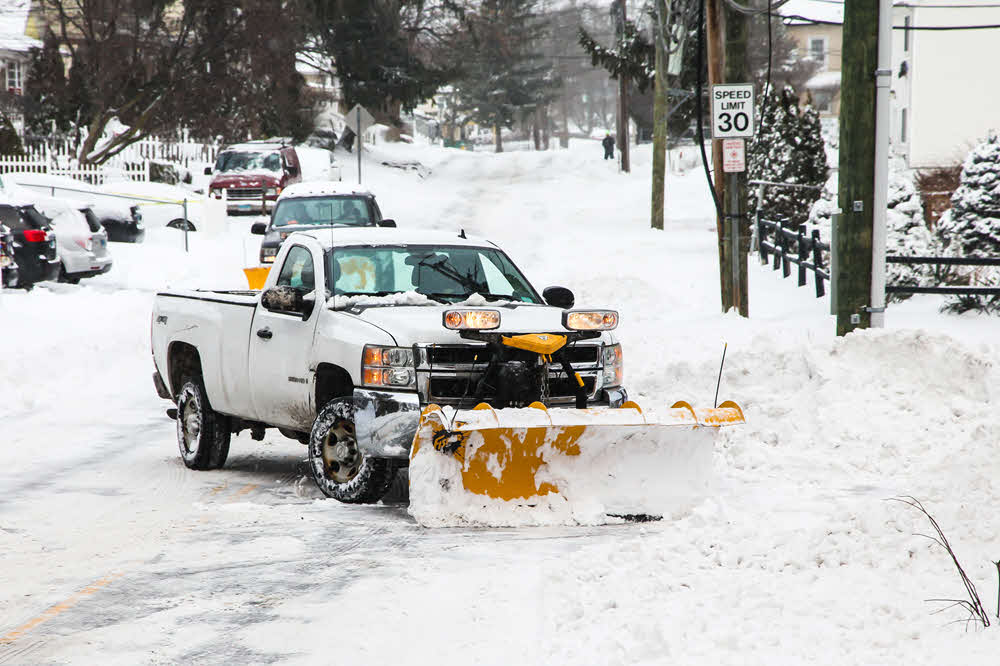Snow Removalin Center Line MI
Swift and Efficient Snow RemovalTo Keep Your Operations Flowing
We Are Locally Owned & Operated For Over 37 Years
Contact Us Today!
We Serve Businesses In And Around The Following Cities:
About Snow Removal
Introduction
If you manage a commercial property in Center Line, winter months may include dealing with the common yet daunting task of snow removal. This city, renowned for its beautiful winter scenery, is also notorious for the challenges that snow and ice present. This is especially problematic for businesses, where clear and safe access is essential for operation. The aspect that often comes into play and requires significant attention is snow removal from parking lots, driveways, walkways and other critical access areas around your property.
This guide delves deeply into the procedure, advantages, and practical benefits of professional snow removal, specifically focusing on commercial properties in Center Line. Ample discussion will be on the business-critical aspects such as commercial parking lot snow removal, business driveway snow removal, and access sidewalk snow removal, and how engaging professional snow removal commercial services can help you maintain your business operations smooth and safe.
Understanding the Importance of Commercial Snow Removal
In Center Line, snow removal for commercial properties is essential. Without effective snow removal practices, businesses and entities can face operational problems, safety hazards, and potential legal issues. A commercial parking lot blocked by snow can hinder logistical operations, disrupt customer access, and pose potential liabilities. Similarly, an unclear business driveway or access sidewalk may also violate local regulations and compromise safety.
Professional snow removal becomes paramount here. Utilizing specialized equipment, seasoned know-how, and efficient techniques, professional snow removal services ensure that your commercial property remains clear, functional, and safe throughout the winter.
D&J Contracting, for example, is experienced in tackling the unique snow removal challenges of Center Line. Their team undertakes a thorough assessment of the property, tailors a snow removal plan, deploys appropriate equipment, and works relentlessly to keep your commercial areas clear and accessible.
Commercial Snow Removal: The Process
The process of effective snow removal begins with a proactive approach. Recognized commercial snow removal service providers like D&J Contracting often present a preemptive snow and ice management plan. This comprehensive plan includes a detailed property assessment, identifying high-risk areas that are likely to act as choke points during heavy snowfall.
The snow removal process subsequently commences at the first sign of snow. A reputable service will prioritize clearing of critical areas first, such as access sidewalks, commercial parking lots, and driveways, ensuring that the operations of your business are not hindered.
Benefits of Engaging Professional Snow Removal Services
Engaging professional snow removal services offers extensive benefits. Their quick and efficient services minimize downtime, enabling your commercial operations to continue unhindered. Moreover, this convenience lets you focus on running your business rather than worrying about snowfall. Additionally, professional services comply with local regulations and industry best-practices, thereby protecting you from potential litigation.
Reliability is another undeniable benefit of using a professional service like D&J Contracting. Their 24/7 services ensure that your business doesn’t suffer due to inconvenient climate conditions. Lastly, leveraging industry-specific equipment and seasoned expertise, these services offer a greater level of precision and effectiveness in comparison to manual shoveling or plowing.
Real-world applications can elaborate on these benefits; for instance, a retail store in Center Line, struggling with continuous snowfall, had its parking lot cleared by D&J Contracting efficiently in peak winters. As a result, they were able to bring in more customers even during a severe snowstorm. This underscores the tangible difference that professional snow removal services can make for a business.
Roaring to a Conclusion
As we hail the end of this comprehensive explanation, it is important to review the major points. Given the significant snowfall of Center Line, a well-thought-out plan for snow removal is not an option but a necessity for commercial properties. Businesses must prioritize not just for operation reasons but for safety and compliance as well.
By having a proficient snow removal service like D&J Contracting, you shield your business from the harsh and unpredictable weather, armed with expert strategy and superior service. They offer a responsive, thorough, and efficient solution to keep your business up and running, regardless of the snowfall. And as the real-world examples suggest, these professional services lend assurance, present steadfast support, and most importantly, contribute to your business’ success even during the harshest winters.
While this guide has covered several facets related to commercial snow removal in Center Line, feel free to contact a trusted professional service to discuss your unique requirements and get a custom snow removal plan that suits your business perfectly.
Snow Removal Gallery


Call Us Today to receive your Free Quote for
Snow Removal in Center Line
Serving: Center Line, Michigan

About Center Line, Michigan
Historically, the land that Center Line came to occupy was swamp and wilderness until the early nineteenth century. As land became scarce, French, German, Belgian, and Irish immigrants began clearing the forests and draining the swamps. Center Line was known as “Kunrod’s Corner” during the mid-nineteenth century. The theory is that the French named it “Center Line” because it was the middle of three Potawatomi trails from Fort Detroit to northern trading posts. The “center line” was the trail used from Detroit to Utica. The community received its initial start when Catholics decided to build a church so that they would not have to walk to St. Mary’s in Detroit for Sunday Mass. This church (St. Clement’s) was established in 1854 and attracted more Catholic settlers into the area. In 1863, the first general store was constructed by Joeseph Buechel. On July 19, 1878, Hieronymous Engelmann was the first postmaster, and he was succeeded in 1885 by Sophia Buechel. The “Centre Line” post office closed on July 31, 1906, and the name was restored to Center Line thereafter. In this era, street car tracks connected Detroit to Center Line along Van Dyke Road, and Ten Mile Road was the final stop of the street car. The village was incorporated in 1925 in the center of Warren Township, which is now the city of Warren, and was incorporated as a city in 1936.
Center Line is in southwestern Macomb County and is surrounded entirely by the city of Warren. It is 11 miles (18 km) north of downtown Detroit, 7 miles (11 km) west of St. Clair Shores, 6 miles (10 km) east of Royal Oak, and 11 miles (18 km) south of Utica. Interstate 696 runs along the northern edge of Center Line, with access from Exits 22 through 24. Highway M-53 (Van Dyke Avenue) runs north-south through the center of town, connecting Detroit and Utica.
According to the U.S. Census Bureau, the city of Center Line has a total area of 1.75 square miles (4.53 km), all land.
| Census | Pop. | Note | %± |
|---|---|---|---|
| 1930 | 2,604 | — | |
| 1940 | 3,198 | 22.8% | |
| 1950 | 7,659 | 139.5% | |
| 1960 | 10,164 | 32.7% | |
| 1970 | 10,379 | 2.1% | |
| 1980 | 9,293 | −10.5% | |
| 1990 | 9,026 | −2.9% | |
| 2000 | 8,531 | −5.5% | |
| 2010 | 8,257 | −3.2% | |
| 2020 | 8,552 | 3.6% | |
| U.S. Decennial Census | |||
As of the census of 2010, there were 8,257 people, 3,632 households, and 1,988 families residing in the city. The population density was 4,745.4 inhabitants per square mile (1,832.2/km). There were 3,920 housing units at an average density of 2,252.9 per square mile (869.8/km). The racial makeup of the city was 82.5% White, 12.0% African American, 0.4% Native American, 2.5% Asian, 0.1% from other races, and 2.5% from two or more races. Hispanic or Latino of any race were 1.7% of the population.
There were 3,632 households, of which 27.7% had children under the age of 18 living with them, 32.0% were married couples living together, 17.5% had a female householder with no husband present, 5.2% had a male householder with no wife present, and 45.3% were non-families. 40.2% of all households were made up of individuals, and 18.1% had someone living alone who was 65 years of age or older. The average household size was 2.22 and the average family size was 3.01.
The median age in the city was 41.2 years. 21.4% of residents were under the age of 18; 8.2% were between the ages of 18 and 24; 25.1% were from 25 to 44; 27.5% were from 45 to 64; and 17.7% were 65 years of age or older. The gender makeup of the city was 46.1% male and 53.9% female.
85.9% of residents 25 or older hold a high school degree. 10.8% of residents 25 or older hold a bachelor’s degree or higher. Median household income was $30,752. 21.3% of the population lives below the federal poverty line.
As of the census of 2000, there were 8,531 people, 3,821 households, and 2,074 families residing in the city. The population density was 4,912.6 inhabitants per square mile (1,896.8/km). There were 3,916 housing units at an average density of 2,255.0 per square mile (870.7/km). The racial makeup of the city was 93.82% White, 3.09% African American, 0.25% Native American, 1.01% Asian, 0.26% from other races, and 1.57% from two or more races. Hispanic or Latino of any race were 1.51% of the population.
There were 3,821 households, out of which 24.2% had children under the age of 18 living with them, 36.8% were married couples living together, 13.7% had a female householder with no husband present, and 45.7% were non-families. 40.9% of all households were made up of individuals, and 22.5% had someone living alone who was 65 years of age or older. The average household size was 2.18 and the average family size was 2.99.
In the city, the population was spread out, with 21.8% under the age of 18, 6.9% from 18 to 24, 28.5% from 25 to 44, 20.5% from 45 to 64, and 22.4% who were 65 years of age or older. The median age was 40 years. For every 100 females, there were 81.5 males. For every 100 females age 18 and over, there were 75.5 males.
The median income for a household in the city was $31,677, and the median income for a family was $47,241. Males had a median income of $39,947 versus $26,487 for females. The per capita income for the city was $19,066. About 10.6% of families and 13.3% of the population were below the poverty line, including 17.9% of those under age 18 and 14.4% of those age 65 or over.
Most Center Line residents are zoned to schools in Center Line Public Schools, including Center Line High School. A small portion of the city is in Van Dyke Public Schools, served by Lincoln High School.<
St. Clement Catholic School, of the Roman Catholic Archdiocese of Detroit, was in Center Line. It was established in 1857. It had 110 students in the 2009-2010 year, and then 12 teachers and 89 students in its final year, 2010-2011. The parish decided to close the school as a parish takes a greater share of the costs if the number of students is under 100.
The archdiocese operated St. Clement High School in Center Line. It closed in 2005. Macomb Christian Schools (MCS) occupied the old St. Clement High School building from 2017 until 2019, when MCS shutdown.
Call Us Today to receive your Free Quote for
Snow Removal in Center Line
Related Services in Center Line, Michigan
We Serve Businesses In The Following Zip Codes:
48007, 48015, 48021, 48026, 48035, 48036, 48038, 48042, 48043, 48044, 48045, 48046, 48047, 48048, 48050, 48051, 48066, 48071, 48080, 48081, 48082, 48083, 48084, 48085, 48088, 48089, 48090, 48091, 48092, 48093, 48098, 48099, 48225, 48230, 48236, 48310, 48311, 48312, 48313, 48314, 48315, 48316, 48317, 48318, 48397